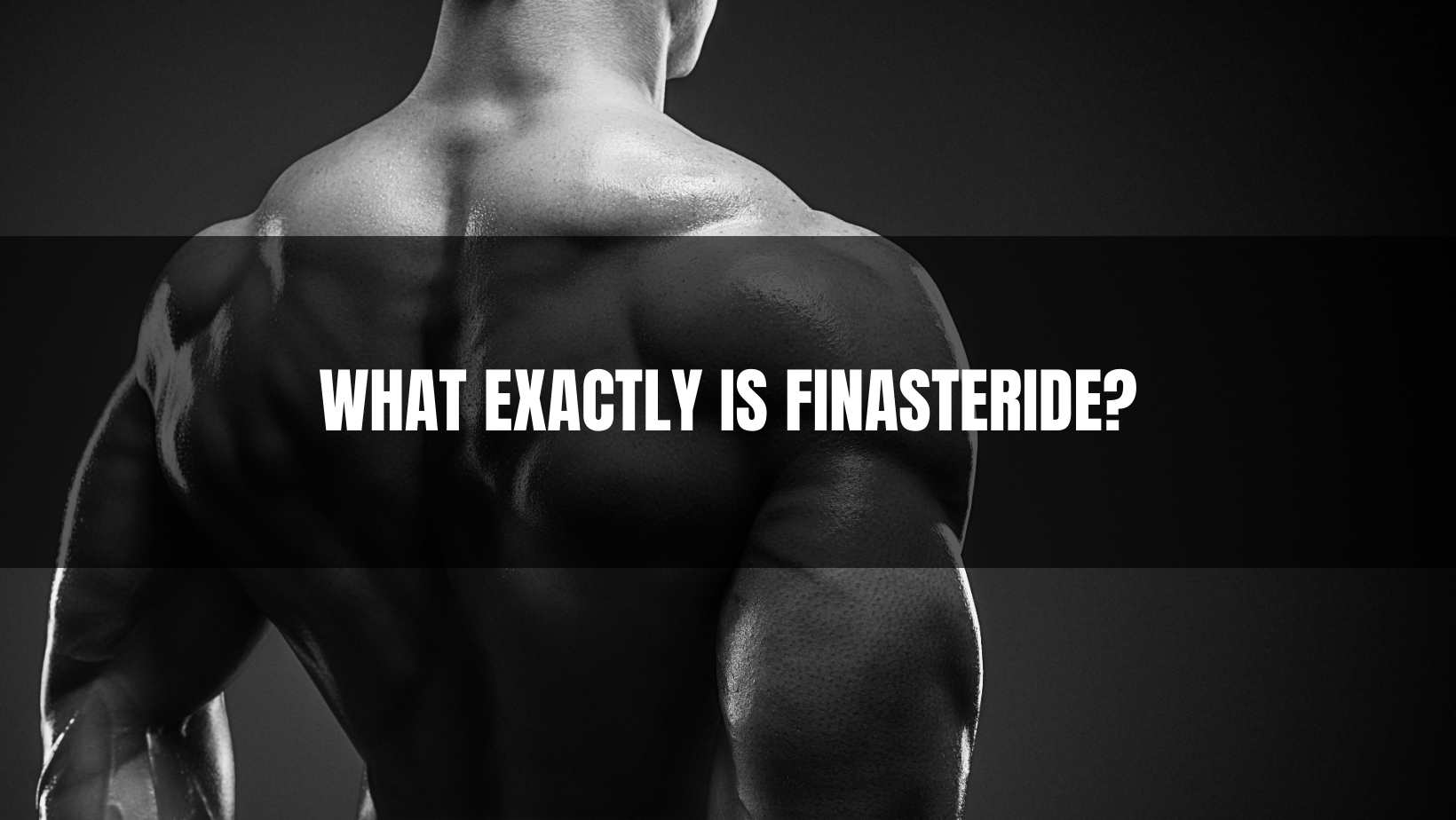Finasteride is a medication approved by the FDA in 2002 for the treatment of male pattern baldness. It works by inhibiting the production of testosterone in the body. This can reduce hair loss and make regrowth more likely. Finasteride is also used to treat benign prostatic hyperplasia (BPH), a condition that causes prostate enlargement and can lead to problems such as urinary tract infections. In some cases, finasteride can improve hair growth by up to 50%. Bodybuilders and other athletes who are concerned about hair loss may find that finasteride is an effective option, as it can help prevent further hair loss while also improving scalp health. In this article, we’ll discuss how hair loss is treated, how finasteride can help with hair loss and how does hair loss affect bodybuilding.
The Causes and Symptoms of Hair Loss that You Should Know About
Many people experience hair loss at some point in their lives. Hair loss can be caused by a variety of factors, including age, genetics, and environmental factors. If you’re experiencing hair loss, it’s important to know the causes and symptoms so that you can diagnose the problem and begin treatment.
The most common type of hair loss is male pattern baldness (MPB). This condition is caused by the gradual loss of hair on the crown of your head over time. Other causes of hair loss include alopecia areata (a temporary form of hair loss), telogen effluvium (a sudden increase in the number or size of hairs falling out), endocrine dysfunctions (damage to the hormone-producing glands that controls hair growth).
Continue reading about Dianabol
The Science Behind Bodybuilding for Hair Loss Prevention
Hair loss is a common problem that can be difficult to treat. However, there are ways to prevent hair loss from happening in the first place. One way to prevent hair loss is to use drugs called finasteride. Finasteride is a drug that was originally created to help treat prostate cancer but has been found to be effective in preventing hair loss as well.
Finasteride is one of the most popular and well-recognized bodybuilding supplements on the market today. Finasteride is a medication that was originally designed to treat benign prostatic hyperplasia (BPH), but it has also been shown to be an effective hair loss prevention agent. In fact, a recent study published in The New England Journal of Medicine found that men who took finasteride had a 29% reduction in hair loss compared to those who did not take the medication.
There are many factors that contribute to hair loss, but one of the primary causes is genetic disposition. However, there are many things that can be done to help prevent hair loss such as eating a balanced diet, getting regular exercise, and taking supplements like finasteride. By taking these simple steps, you can help reduce your risk of developing baldness and associated hair loss problems.

What Exactly is Finasteride?
The first medication approved for use in the treatment of hair loss was finasteride. This drug is still widely used today and has been found to be an effective treatment for men who are experiencing hair loss. Finasteride works by inhibiting the enzyme 5-alpha reductase, which is responsible for converting testosterone into dihydrotestosterone (DHT). Due to its inhibition of 5-alpha reductase, finasteride can help to reduce the production of DHT, which is believed to be responsible for causing hair loss.
Finasteride, a medication used to treat hair loss, is in the top 100 prescribed medications in the United States. The drug was prescribed 8 million times in 2018, making it one of the most commonly used medications in the country. Researchers from Ohio State University studied prescribing data from 2009 to 2018 to find that finasteride has remained popular over time despite concerns about its long-term safety. The researchers note that finasteride is used primarily by men and that there are no known side effects specific to bodybuilding users.
Compound Information of Finasteride
There’s a new front in the war on hair loss. And it’s not the comb, brush or pill. It’s a little-known drug that has been shown to reduce the amount of DHT produced in the scalp and prostate gland by around 70%. Known as finasteride, this drug is used to treat hair loss in men and is also being explored as a possible treatment for prostate cancer.
DHT is a hormone that plays an essential role in male development and reproduction. In excessive amounts, however, DHT can damage hair follicles, leading to baldness. The same thing happens when too much DHT proliferates in the prostate gland – it can lead to prostate cancer. So by reducing the amount of DHT produced, finasteride may help address both types of hair loss. Finasteride can be taken orally or as an injection. Side effects may include sexual dysfunction, erectile dysfunction and gynecomastia (breast enlargement). Bodybuilders should be aware that finasteride can cause shrinking of muscle mass and decreased strength.
Finasteride is being increasingly used by bodybuilders to combat the side effects of steroid use. Steroid users often experience hair loss as a result of their hormones interacting with the hair follicles, and Finasteride has been found to help reduce this problem. Bodybuilders using steroids are often looking for ways to optimize their performance without sacrificing gains in muscle mass or strength, so Finasteride’s use as a hair loss prevention tool makes sense.
Finasteride, an FDA-approved hair loss drug, has been administered to transgender females as part of their hormone therapy to help prevent hair loss. Transgender females have a higher risk of hair loss than the general population and using finasteride can help reduce that risk. This is especially important for transgender females who may undergo gender reassignment surgery, as hair loss after surgery can be very discouraging.
Finasteride Uses in Bodybuilding
Finasteride is being investigated as a possible treatment for bodybuilding-associated muscle atrophy. A study published recently found that Finasteride may be effective in reversing muscle density loss in bodybuilders. The study recruited 60 bodybuilders who were taking Finasteride and compared them to a control group of 30 non-bodybuilders. Muscle density was measured using MRI scans before and after 12 weeks of taking Finasteride. The results showed that those who took the medication had an increase in muscle mass (by 2%) when compared to the control group. Bodybuilders have been using finasteride usually to improve their hair growth, and some have even claimed that it has helped them achieve fuller, thicker hair.
Expected Results from Taking Finasteride
Expected results from taking finasteride can vary depending on the individual. Here are the most common ones:
– As Finasteride becomes active in the body, levels of DHT will begin to drop. The medication works by inhibiting the production of DHT. This means that hair loss will likely become less severe over time as the drug works its way out of your system. This in turn reduces hair growth and causes a decrease in testosterone levels. The side effects of this medication are typically mild and usually only last for a few months. However, some people may experience more serious side effects, including impotence, loss of libido, and erectile dysfunction.
– Finasteride, a drug meant to treat hair loss, has been met with mixed reactions by bodybuilders and athletes who are looking to restore their hair health. Many have found that the restoration process is not an overnight thing and that it takes time and patience. While some may experience regrowth within six months of starting treatment, others may take up to two years before seeing any significant results.
There are a few factors that can affect regrowth, including the severity of your hair loss, the dosage of finasteride you are taking, and your overall health. If you are experiencing significant hair loss, it is important to speak with your doctor about whether or not this medication could be an appropriate option for you.
– Around 3 months into therapy, the majority of finasteride users will notice an improvement in their hair, according to a study conducted by researchers from the University of Texas Southwestern Medical Center. The study surveyed 84 men who had been prescribed finasteride for hair loss and found that 85% of them reported an improvement in hair density or thickness at 3 months. Furthermore, nearly half of the participants claimed that their hair loss had stopped altogether. The researchers say that this is the first study to demonstrate that long-term use of finasteride can improve hair density or thickness in men with male pattern baldness.
– The use of finasteride has been found to improve significant improvements can take up to a year to be noticeable. Researchers analyzed data from previous studies involving finasteride and bodybuilding, concluding that the drug is beneficial for both. The findings could have important implications for the way bodybuilders think about using finasteride and how they approach hair loss.
– For men who are experiencing hair loss, it is important to find a treatment that works best for them. While some people may be happy with the results of using a topical hair treatment like Minoxidil, others may see better results when combined with finasteride. Finasteride is a medication that has been shown to help regrow hair in men. When used in conjunction with other topical treatments and lifestyle changes, such as staying away from stressful environments and eating a balanced diet, optimal results can be achieved.

Benefits of Using Finasteride in Bodybuilding
The use of finasteride has been shown to have a number of benefits for bodybuilders. These benefits include:
– Reducing hair loss: Finasteride is a medication used to treat male pattern baldness. It was initially approved as a treatment for prostate cancer but has since been found to be effective in treating hair loss in men as well. Finasteride works by blocking the enzyme 5-alpha reductase, which is responsible for hair loss.
Since finasteride is only effective when it’s taken daily, it’s important to be consistent with your dosage if you want the best results. There are also some side effects that can occur while taking finasteride, including mild sexual side effects and depression. However, these side effects are relatively minor and typically go away after you stop taking the medication.
If you’re experiencing hair loss and are considering using finasteride, speak with your doctor first to make sure it’s an appropriate treatment option for you.
– Promotes new hair growth: There are some reports that Finasteride can also promote new hair growth. Some people have claimed that taking Finasteride can help them regrow lost hair. Researchers aren’t sure how this works, but it may be because of the way Finasteride reduces DHT levels in the scalp. This could lead to an increase in the production of testosterone, which is known to promote hair growth. There are some risks associated with taking Finasteride, including an increased risk of developing prostate cancer and other male health problems. So it’s important to discuss any potential benefits and risks with your doctor before beginning treatment.
– Improved scalp health: While there is still some controversy surrounding the use of finasteride for bodybuilding purposes, there are many anecdotal reports from users who swear by the drug’s ability to promote healthy scalp hair.
Some believe that taking finasteride can help reverse years of damage done to hair follicles, while others believe that it can improve overall circulation and promote new growth. There is no scientific evidence to support either claim at this time, but there is certainly enough anecdotal evidence to warrant further investigation.
– Improved muscle recovery: Finasteride has been found to promote muscle recovery after exercise. This was shown in a study that compared the effects of finasteride and placebo on skeletal muscle protein synthesis following resistance training. This is due to the drug’s ability to reduce inflammation and increase blood flow. Finasteride increased skeletal muscle protein synthesis by 26% when compared to the placebo group. This suggests that finasteride can be beneficial for bodybuilding enthusiasts who are looking to improve their muscle recovery after workouts.
– Maintaining density and strength in the muscle tissue: Finasteride has been found to maintain density and strength in the muscle tissue. The finding could lead to new treatments for various muscle-wasting diseases. Finasteride inhibits the enzyme 5-alpha reductase, which is responsible for converting testosterone into dihydrotestosterone (DHT). DHT is responsible for hair loss and several other diseases, including prostate cancer. By inhibiting this enzyme, Finasteride preserves the density and strength of muscle tissue. The findings were published in the journal “Scientific Reports.
– More defined physique: Finasteride has been found to give more defined physiques in bodybuilders. This was shown by a study conducted at the University of Missouri. The participants took either a placebo or 5mg Finasteride daily for 12 weeks. The group taking Finasteride saw an average increase in muscle mass of 2.7% while the placebo group only saw a 0.5% increase. Furthermore, the study found that there was no significant difference between the groups when it came to strength or power gains. These results suggest that Finasteride may be beneficial for bodybuilders who are looking to gain muscle and strength.
Dosage of Finasteride
The dosage of finasteride prescribed to treat hair loss can vary depending on the severity of the condition, age, weight, and other factors. Finasteride doses typically range from 1 mg to 5 mg per day. Some patients may require higher or lower doses based on their individual response.
Depending on how it is used, finasteride dosages will change. It is usually dosed at 1 mg per day for hair loss. Some people can take up to 2.5mg per day, while bodybuilders can take up to 5mg.
Possible Side Effects of Finasteride
Like all medications, there is always the risk of side effects if the dosage is too high. Finasteride can cause problems with sexual function and fertility, as well as significant skin changes that may require treatment. Here are the most common ones:
- Some users of finasteride, a drug used to treat hair loss and erectile dysfunction, have reported experiencing both problems. Finasteride can cause sexual side effects such as impotence and an inability to achieve an erection. These side effects can be particularly troublesome for men who are trying to build muscle mass or who are sexually active.
- Some people who use finasteride that their sex drive is decreased alongside their ED. Bodybuilders who take finasteride to increase muscle mass may also experience a decrease in libido. Finasteride can block the effects of testosterone, which can lead to a decrease in libido and an increase in body fat. Some people who take finasteride find that they need an increased amount of sex drive to get aroused, while others only find that their sex drive is reduced when taking the drug.
- Finasteride can also cause gynecomastia (enlargement of the male breast), according to a study published recently. Gynecomastia is a common side effect of Finasteride, accounting for up to 12% of all cases reported in clinical trials. The prevalence of gynecomastia increases with age and may be more severe in men who are overweight or obese. If you experience gynecomastia while taking Finasteride, you should speak with your doctor.
- Mental concentration can also be negatively impaired during the use of finasteride. This is because finasteride can reduce the amount of testosterone in the body, which can impact mental performance.
- A study published recently also found that finasteride impaired mental concentration and memory in men who were using the drug to treat hair loss. The study participants were divided into two groups; one group received placebo pills while the other group received a pill containing 0.5mg of finasteride. Both groups were asked to complete a task that required them to focus on and remember a series of images. The results showed that the group that received the finasteride pill had poorer performance than the placebo group on both tasks.
There are a few things to keep in mind when taking finasteride, the most common being that it should be taken as prescribed by your doctor. If you’re using the medication correctly, however, the chances of suffering from these side effects are very low. While some people may experience a decrease in hair density or even baldness, these problems are usually reversible with proper treatment and usually only occur if you take too much of the medication.
How to Take Finasteride for Maximum Results?
Finasteride is a prescription medication used to treat male hair loss. It works by reducing the production of testosterone. This can help to stop the growth of new hair and improve existing hair quality.
There are a few things you can do to maximize the results of finasteride treatment:
- Follow the doctor’s instructions carefully. Doctors often prescribe medications like Finasteride to treat hair loss, but many people don’t take the drug exactly as instructed. By following the doctor’s instructions carefully, you can maximize the results of Finasteride. If you miss a dose, take it as soon as you remember, but only continue taking the medication if your doctor approves. Also, when taking Finasteride, it is important to keep track of both your dose and how you are feeling. Depending on your individual situation, you may need to adjust your dosage or take the medication at different times of day or night.
- Eat a balanced diet and get plenty of exercise. Both of these things can help improve your overall health and may help to support your body’s natural ability to produce testosterone. A balanced diet includes all the essential nutrients your body needs to function well. A good way to ensure you are getting enough nutrients is to eat a variety of foods. This will help ensure that you are getting all of the vitamins, minerals, and other nutrients your body needs. Eating a balanced diet can also help reduce your risk of developing certain medical conditions, such as heart disease and stroke.
- Avoid using harsh chemicals or products on your hair that could damage it further. Harsh chemicals or products can be damaging to hair follicles, which can lead to baldness. Use a topical treatment such as minoxidil or ketoconazole that helps increase blood flow to the scalp. This will help the drugs reach the hair follicles and work more effectively. Avoid using harsh shampoos, conditioners, or other products on your hair. These products can damage your hair and lead to baldness. Instead, use milder products that will not damage your locks.
- Don’t hesitate to speak with your doctor if you experience side effect. Side effects are common with most medications, but they’re especially common when taking finasteride. If you experience a side effect, don’t hesitate to speak with your doctor. Finasteride can cause hair loss, erectile dysfunction, and other serious side effects. It’s important to tell your doctor about any side effects you experience so that you can get the appropriate treatment.

Regimen for Best Results with Finasteride or other Medications for Hair Loss
There is no one best regimen for treating hair loss. However, many people find that taking finasteride or another type of medication helps improve their hair loss situation. Finasteride is a medication specifically designed to treat male pattern baldness. It works by preventing the growth of new hair follicles in the scalp. While there is no “one size fits all” approach to treating hair loss, following a prescribed regimen can help improve your results.
Some common regimens for best results with finasteride include taking the medication for at least six months, using minoxidil (an over-the-counter product), and combining finasteride with other hair restoration therapies such as laser therapy or surgery.
While there is no guarantee that any particular approach will work for everyone, following a specific hair loss treatment plan can help improve your chances of regaining lost hair. It’s important to talk to your doctor about which approach is right for you and to be patient while waiting for results.
The Importance of a Healthy Lifestyle for Hair Growth and Prevention of Hair Loss
Hair loss is a common concern for people of all ages. It can be a result of many different factors, including genetics, environment, and lifestyle. However, there are many ways to prevent hair loss and promote hair growth. One way to do this is to maintain a healthy lifestyle overall. This includes eating a balanced diet, getting enough exercise, and avoiding tobacco smoke and other harmful substances. Additionally, it is important to have good hair hygiene habits. This includes taking care of your scalp by shampooing regularly and using conditioner that is formulated for hair growth. By following these tips, you can help keep your hair healthy and prevent it from falling out in large amounts.
Conclusion: Why is Finasteride So Effective on Hair Loss?
One reason why Finasteride is so effective is because it decreases the production of DHT, a hormone responsible for stimulating hair loss. In addition, finasteride blocks the conversion of testosterone into DHT.
Finasteride has been shown to be very effective in treating hair loss in men. In clinical trials, it was found to be more effective than placebo at reducing hair loss by 50%. This result is likely due to the fact that finasteride blocks testosterone from binding to its receptor, which reduces the amount of testosterone available to cause hair growth.
Additionally, finasteride appears to have other benefits when used for hair loss prevention. For example, it has been shown to reduce the risk of baldness by 20%. Additionally, it may improve skin quality and help prevent acne.



I’ve been taking finasteride for hair loss 1 mg for the past 19 years, and I’ve never experienced any negative effects. It also helped me keep my remaining hair and regrow some hair on my head (I had a small balding spot). The long-term use of finasteride is safe.
I have been taking finasteride for the past 5 years, and I’m never looking back. Finasteride is a lifesaver for those with pattern baldness. Finasteride uses in bodybuilding for hair loss prevention is great, and I take one pill every single day, without fail.
I’ve been fighting my receding hairline for years so that I can maintain a youthful appearance. I tried to take Finasteride and am seeing new hair growth in just 2 weeks! If you decide to try it, be sure to consult your doctor first so you don’t experience any unforeseen side effects of Finasteride.
For several years, I utilized the use of finasteride and minoxidil together, and my hair greatly benefited from this regimen. The only drawback, according to what I read in the forums, was some wrinkling on the glans penis. Given how well it keeps your hairline intact, I wish there were topical treatments for these negative effects. Overall, Finasteride’s use as a hair loss prevention is really effective.
I am currently on Avodart and took Finasteride for hair loss for 20 years with virtually no negative effects. My testosterone level was well over 600 when it was last checked, which, according to this video, may benefit me. I’m 58 and still have no need for any kind of pharmaceutical assistance with sex. For me, the best treatment of hair loss was finasteride.
I’ve been taking Finasteride for about a year, and I’m 28 years old. There are absolutely no adverse effects. Even though I didn’t get the miraculous response that we all hoped for, my hair appears to be around where it was a year ago, which suggests that my hair loss has stopped. The key is prevention!
I have been on dosage of finasteride for about 3 months now. It has helped stave off my hair loss and even regrowing a little hair in the process. I am also feeling more confident, because I am no longer ashamed of what my scalp looks like. I recommend this to anyone looking for either hair loss prevention or a way to stop the progression of it.
The testimonial for the use of finasteride in bodybuilding for hair loss prevention is great, but I had to use it for bodybuilding purposes. I found my dosage of finasteride was best at 100mg per day. After about a month of taking the pill every day, I noticed my hair began to grow back fuller and thicker than before.
I had been struggling with hair loss for years until I found out about finasteride. The medication was easy to get, and the results from taking Finasteride started to work after just a few weeks. Now I am confident in my appearance and have regained the confidence that had dwindled over time with my hair falling out. It really helped me in the gym, too; the benefits of using Finasteride in bodybuilding have been able to help me bulk up a lot more than usual!
I’ve been taking finasteride for bodybuilding purposes for a few months now to prevent hair loss and I can see my hair is already starting to grow back. I can’t say enough how much this product has improved my self-confidence. It’s a great all-natural solution that I am 100% confident in, so go ahead and buy it, you won’t regret it! The use of finasteride for bodybuilding for preventing hair loss is a must.
Since I was 21 years old, I am taking Finasteride 1mg for 13 years without experiencing any negative effects. It essentially prevents decay, and if you get regrowth, you’re lucky. When I first noticed my hair thinning and crown receding at age 18, I wish I had started it since I could have kept all of my hair. Using finasteride has allowed me to keep my hair and look good.
I’ve been taking a 1 mg dosage of finasteride for the past 10 months, and I’ve seen some improvement. I am 29 years old, and I first noticed hair loss when I was 23. The hair I had when I was younger may never grow back, but I’ve observed new, thicker hair in places I didn’t have any before. Negative effects No, not yet. Finasteride users report increased libido, but I have noticed the same.